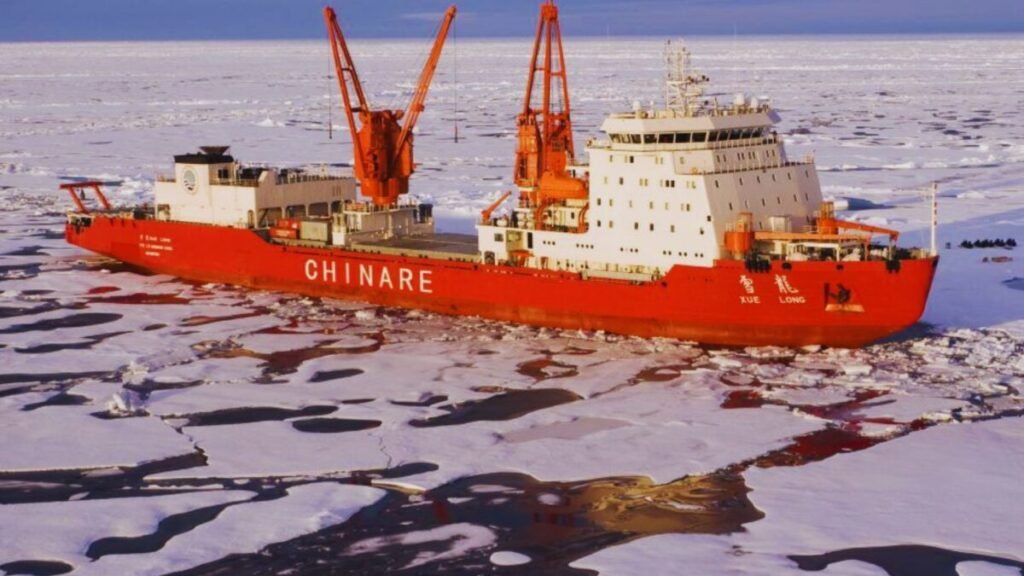China’s Arctic Expansion: A Shift in the Geopolitical Landscape of the North Hemisphere

In less than two decades, China has emerged as a significant player in the Arctic region. Its presence, encompassing scientific exploration, technological advancements, and naval activities, is steadily expanding under a façade of peaceful intentions that mask deeper ambitions. The recent voyage of the icebreaker Xue Long 2 in waters within U.S. jurisdiction serves as a mere glimpse of China’s growing influence in the Arctic.
An Arctic Policy Beyond Science
Since 2018, China has been actively promoting its Arctic policy, a framework that legitimizes its involvement in international forums and polar research initiatives. While China’s White Paper on Arctic Policy emphasizes goals such as scientific collaboration, environmental conservation, and the promotion of open sea routes, the country’s establishment of infrastructure and formation of bilateral partnerships indicate a grander scheme with economic, strategic, and geopolitical ramifications that challenge the existing order in the region.
Stations, Icebreakers, and Dual Potential
Central to China’s Arctic expansion are its research stations and collaborative observatory in Iceland. Despite their stated focus on climate studies and oceanographic research, Western analysts raise concerns regarding potential military applications. Moreover, China’s expanding fleet of polar vessels, spearheaded by the Xue Long 2 and plans for a nuclear-powered icebreaker, position the country among the elite league of dominant Arctic powers.
The Polar Silk Road and Russo-Chinese Alliance
Energy ventures such as Yamal-LNG and the development of new port facilities are solidifying the Polar Silk Road, a maritime trade route linking Asia and Europe that diminishes distances and alleviates the threat of chokepoints in key straits. This corridor not only facilitates trade but also grants access to vital resources like natural gas, minerals, and rare earth elements essential for the global shift towards cleaner energy sources.
The Arctic emerges as a strategic battleground where major powers vie for supremacy. While the U.S. and Canada bolster their military presence in the region, China adopts a more nuanced and persistent approach, leveraging scientific outposts, diplomatic accords, and cutting-edge technology to assert its influence. In this silent competition, China demonstrates its ability to project power without resorting to overt aggression, thereby reshaping the dynamics of the world’s ultimate frontier.







